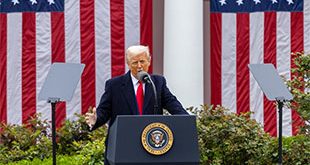It is apparent that Mwondha brought some bite to the office of IGG but why has she reaped more negative perception than kudos? Observers say her biggest failure seems to have been her narrow interpretation of her mandate.

Mwondha believed that the president appointed her by the divine guidance of God. She therefore regarded herself as a servant of God and President Museveni ‘ in that order. It is on this basis that she put herself above Parliament which approves her appointment, passes her budgets and evaluates her annual reports. She also reportedly managed the public office basing on religious doctrine: she pardoned public officials, prescribed punishment or the arrested and prosecuted some at her discretion.
‘I have a copy of a document which was passed to me by the Speaker of Parliament. It is a petition through him to the House on the IGG. It details issues that require her personal presence; issues of her performance as IGG: her methods of appointment, promotions and demotions, termination of employees, transfers, witness protection and her leadership as IGG. There are allegations that Faith Mwondha manages the office of the IGG by feelings, revelations, rumours and divine premonitions. She needs to respond to these issues in person,’ then chairman of the committee on legal and parliamentary affairs Peter Nyombi told The Independent in an earlier interview.
For four years she refused to respond to Parliament’s summons to answer audit queries. Even when a petition was sent to parliament and the president, she refused to offer any explanations.
She also put herself above the rest of the judiciary, telling off fellow judges as corrupt. She also had a confrontation with the Judicial Service Commission when she kept switching the source of her salary as and when it suited her. When the IGG was granted more pay than judges, she preferred to be paid outside the judiciary wage bill but when judges’ salaries were increased, she demanded to be reverted to the judiciary and be paid as a judge.
Her partisan approach to fighting corruption also took some shine off the high profile cases she successfully investigated. For example she unilaterally constituted herself into a tribunal and declared former Rubaga South MP Ken Lukyamuzi ineligible to stand for re-election because of his late declaration of his assets. Lukyamuzi took the matter to court, now before the Supreme Court.
Recently, she hauled Jinja mayor Mohammed Baswale Kezaala out of office and into detention for alleged misappropriation of Shs 12 million in spite of a court injunction restraining her. Yet she has not issued a statement, let alone opened any investigations, into the NSSF-Temangalo Shs 11 billion land purchase scandal in which workers could have lost billions of shillings of their savings to Security minister Amama Mbabazi and his partners.
Be that as it may, the three-week public fight between the IGG and other government departments over her reappointment marks a watershed for the abrasive judge and the institution that is supposed to keep watch on corruption and abuse of office.
Last week she refused to face Parliament’s appointment committee even when the president, whom she says is the only person she reports to insisted that she does so. This has prompted MPs to demand that she abdicates office and stop conducting herself as the ombudsman.
Yet in the interim, Mwondha is standing her ground, saying she is still IGG until President Museveni tells her to leave. The questions for many Ugandans therefore are whether politicians are trying to pull down the IGG or whether she has any recourse in the law to support her defiant stand? In short, who is right?
What legal experts say
A reputable judge of a superior court to the High Court, who declined to speak on record, said the IGG erred in defying Parliament’s summons.
‘In my opinion, the IGG is in error. Parliament is supreme. There might be new issues on which Parliament would like to re-examine her. So if Parliament calls her, she should appear before it for re-examination,’ said the judge.
This school of thought is shared by lawyer Erias Lukwago, also MP for Kampala Central. ‘Eligibility for reappointment provided for in article 223 of the constitution does not mean automatic reappointment. She is just eligible for reappointment and the whole process begins again,’ Lukwago continues. ‘It’s like for politicians. Their eligibility for re-election does not mean that they cannot go for nomination or present their academic papers to the Electoral Commission just because they had already gone through the process in the previous election.’
Another senior judge of the High Court laughed off the IGG’s argument that since she had been vetted upon her first appointment, she does not need to be vetted again on reappointment.
‘She [IGG] is being overzealous and unreasonable. The appointing authority [the president] is the one who said, go to Parliament for vetting. Her predecessor Jotham Tumwesigye went to Parliament for vetting when he was reappointed. She has served for four years, this is a new contract. It’s like a new appointment with a new person. Parliament would want to know whether she is still valid for reappointment,’ the judge said.
The judge reasoned that the merits on which the IGG was vetted on the previous appointment may no longer be the same after the first term of office. He says that during the first tenure, the IGG might have become incompetent, over-age or for some reason, may no longer be eligible for reappointment. On that ground, the judge argues, Parliament needs to vet her again to ensure she still has the merits to serve the second term.
‘Suppose you have been incompetent and the appointing authority is just favouring you? Parliament would wish to see whether you are still eligible as IGG. When Justice Galdino Okello was appointed to Supreme Court, he went to Parliament for vetting yet he had been vetted when he was appointed to High Court and Court of Appeal,’ the judge reasoned.
Is it proper to continue in office?
The judge says it would be illegal because Mwondha has not received instruments of appointment for a second term as IGG from the Public Service. ‘The best way is to go on leave. She is holding the job unconstitutionally because she has not received the official instruments of appointment. She should even refund the salaries and allowances for last month and stop using facilities of the IGG office because she is there illegally,’ said the judge.
The IGG’s contract expired in February.
The judge thinks it will be hard for Mwondha to continue holding office under the current circumstances. ‘There is a controversy that must be resolved. Parliament has taken a stand that she must be vetted. The cabinet [executive] has also taken a stand, through the Attorney General, that she should go for vetting. So how can she continue in office against the decision of the two arms of government? It will paralyse her office?’ the judge argued.
David Mpanga of Mpanga and Company Advocates reinforces the judge’s argument and says that since there is a controversy to be resolved on the interpretation of the constitution and the mechanism of resolving it lies in the judiciary; ‘one of the parties will have to go to court for the proper interpretation of the constitution.’
Mpanga says Mwondha should have gone to the Constitutional Court for redress instead of running to the president or saying her appointment was from God and citing the Bible as if Uganda was a theocracy.
What does the constitution say?
Article 223 Clause 4 states: ‘The Inspector General of Government and Deputy Inspector General of Government shall be appointed by the President with approval of parliament and shall not, while holding office, hold any other office of emolument in the public office.’
Article 223 (5) of the constitution spells out qualifications for a person eligible to be IGG. Mpanga says Mwondha could have been misled by thinking that since this clause does not mention the appointing authority and parliament, there is no need for vetting her again. He argues that the clause only limits the president on who he can appoint IGG. But Parliament may refuse to approve that person on various grounds including character, competence, etc. Mpanga argues that during the first tenure of office, the IGG might do something or behave in a manner that does not make him/her eligible for reappointment and therefore he/she must be subjected to fresh vetting by parliament.
Way forward for Mwondha
The High Court judge told The Independent: ‘She should swallow her pride and go to Parliament or leave office. Since she has refused to go to Parliament, it means she has declined the reappointment.’
Mpanga thinks more or less the same. He says the best way for Mwondha may be to consider resigning if she takes public office as a service of sacrifice rather than an entitlement or petition the Constitutional Court for redress.
(By Odoobo C. Bichachi, P. Matsiko wa Mucoori, Obed K. Katureebe & John Njoroge)
BRIEF BIO: Who is Justice Faith Mwondha?
Faith Essy Kalikwani Mwondha was born on March 16th, 1954. She attended Iganga Secondary School for her Ordinary Level education (1968-71), Namasagali College for her Advance Level (1972-73) and Makerere University for Bachelor of Laws (1974-77). Attended Law Development Centre (1977- 1978). In 2006 attained a degree in Business Law from the De Montfort University of Leicester.
1979, appointed Grade Two Magistrate, Kampala.
1984, enrolled as an advocate of the High Court.
1987, Jinja acting Chief Magistrate until 1990 when she was confirmed.
1994, elected Jinja Woman Delegate to the Constituent Assembly. She had been a member of the National Resistance Council (parliament).
1996, appointed commissioner, Uganda Human Rights Commission.
2001, appointed High Court Judge
2005, appointed Inspector General of Government.
Has a law firm M/S Mwondha & Co. Advocates.
While at Makerere University, Mwondha was Secretary of Mary Stuart Hall. 1991-1998, was a delegate of Church of Uganda to the World Council of Churches in Geneva. 1995-1997, member of Makerere University Council. 2000, appointed member of Uganda Christian University Council, Mukono.
She is also a member of the Global Board, the United Bible Society and chairperson of Iganga SS Old Students Association.
Compiled by John Njoroge
 The Independent Uganda: You get the Truth we Pay the Price
The Independent Uganda: You get the Truth we Pay the Price



